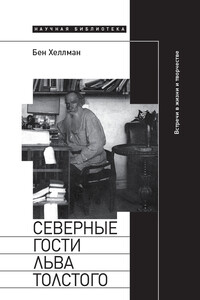Английский язык c дружелюбным скелетом. Легенды североамериканских индейцев | страница 3
down [daun], talk [tLk], so [squ], alone [q`lqun]
They sat down in a corner, but soon the bears scented the hunter and began to ask, "What is it that smells bad?" The chief said, "Don't talk so; it is only a stranger come to see us. Let him alone."
Food was getting scarce in the mountains (пропитание становилось скудным в горах), and the council was to decide (и совет должен быть решить) what to do about it (что делать с этим: «насчет этого»). They had sent out messengers all over (они разослали посыльных повсюду), and while they were talking (и пока они беседовали) two bears came in and reported (два медведя вошли и сообщили) that they had found a country in the low grounds (что они нашли страну/местность в нижних землях) where there were so many chestnuts and acorns (где было так много каштанов и желудей) that mast was knee deep (что в них можно утонуть по колено: «что корм был /по/ колено глубиной»; mast — плодокорм).
messenger [`mesInGq], chestnut [`CesnAt], acorn [`eIkLn], report [rI`pLt]
Food was getting scarce in the mountains, and the council was to decide what to do about it. They had sent out messengers all over, and while they were talking two bears came in and reported that they had found a country in the low grounds where there were so many chestnuts and acorns that mast was knee deep.
Then they were all pleased (тогда они были = стали все довольны), and got ready for a dance (и приготовились к танцу), and the dance leader was the one (и руководитель танца = ведущий в танце был тот) the Indians call "Long Hams" (/кого/ индейцы называют Длинные Ляжки), a great black bear that is always lean (огромный черный медведь, который всегда /остается/ тощим). After the dance the bears noticed the hunter's bow (после танца медведи заметили лук охотника) and arrows (и стрелы), and one said (и один сказал), "This is what men use to kill us (это /то/, что люди используют, чтобы убивать нас). Let us see (давайте посмотрим) if we can manage them (сможем ли мы управиться с ними), and may be we can fight man (и, может быть, мы сможем сражаться с человеком) with his own weapons (его собственным оружием)." So they took the bow and arrows (поэтому они взяли лук и стрелы) from the hunter to try them (у охотника, чтобы попробовать).
lean [lJn], manage [`mxnIG], fight [faIt]
Then they were all pleased, and got ready for a dance, and the dance leader was the one the Indians call "Long Hams," a great black bear that is always lean. After the dance the bears noticed the hunter's bow and arrows, and one said, "This is what men use to kill us. Let us see if we can manage them, and may be we can fight man with his own weapons." So they took the bow and arrows from the hunter to try them.





